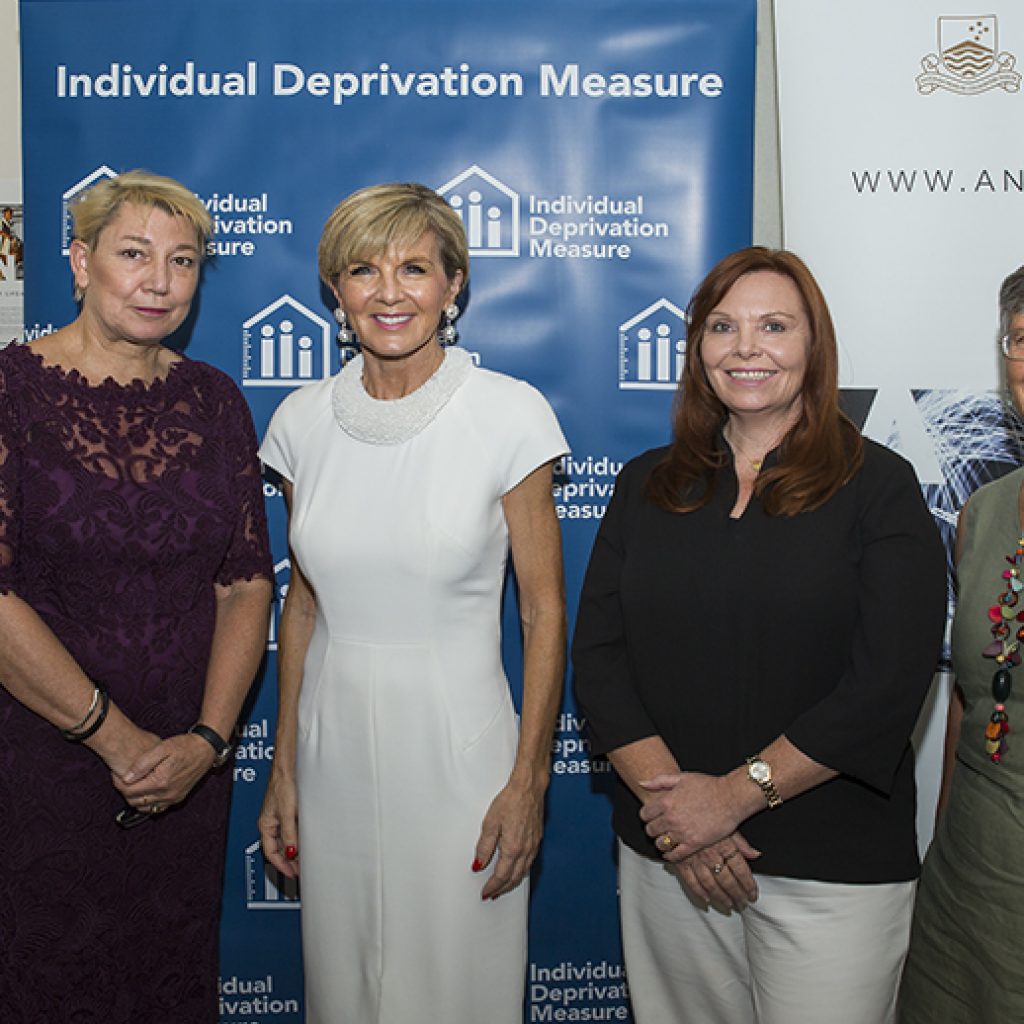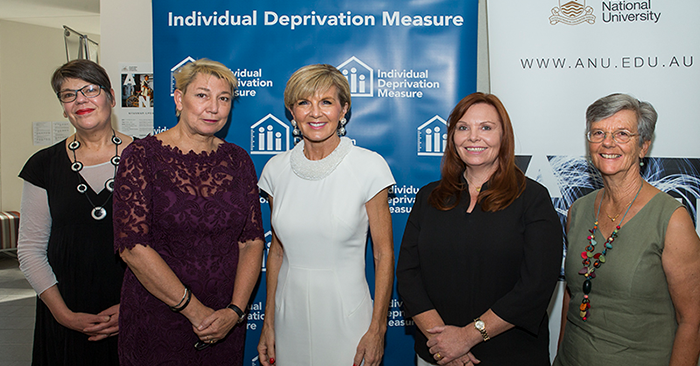
Individual Deprivation Measure Formally Launched by the Hon. Julie Bishop MP
Australia invests in closing gender data gaps in the Indo-Pacific region and globally
Australia will invest $9.5 million over four years in a world-first gender-sensitive and multidimensional measure of poverty, the Individual Deprivation Measure (IDM), launched by Minister for Foreign Affairs the Hon Julie Bishop MP today.

Australia invests in closing gender data gaps in the Indo-Pacific region and globally
Australia will invest $9.5 million over four years in a world-first gender-sensitive and multidimensional measure of poverty, the Individual Deprivation Measure (IDM), launched by Minister for Foreign Affairs the Hon Julie Bishop MP today.
The initiative positions Australia at the frontier of poverty measurement. It is a partnership between The Australian National University (ANU), International Women’s Development Agency and the Department of Foreign Affairs and Trade.
Investment in the Individual Deprivation Measure is an integral part of Australia’s long-term commitment to closing gender data gaps in the Indo-Pacific region and globally.
Minister Bishop launched the program at the 2017 Australasian Aid Conference at ANU.
“It’s important our support has an impact and so I … announce today that the Australian government is supporting a $9.5 million partnership with the ANU and the International Women’s Development Agency to research and implement a program that analyses the extent of the disadvantage faced by individuals particularly women and girls in these scenarios,” Minister Bishop said.
“The result will be the Individual Deprivation Measure, a data tool for policy makers to better target our Aid and improve its effectiveness. So congratulations to ANU and International Women’s Development Agency.”
ANU Associate Professor Sharon Bessell from the ANU Crawford School of Public Policy said it was impossible to effectively tackle problems unless they could be understood. For too long, lack of investment in individual data collection has limited the understanding of who experiences poverty and how.
“We need more and better data, especially gender data,” Associate Professor Bessell said.
“The IDM is the first gender sensitive poverty measure. It is based on the priorities and experiences of both women and men who have lived in poverty, and responds to what matters to them.
“The IDM is able to help reveal the nature and extent of poverty experienced by women and men – and this matters for developing the policies and services that are necessary to fulfill the global promise to leave no-one behind.”
Joanne Crawford from the International Women’s Development Agency said Ignoring intra-household inequality is highly problematic and means global inequality is underestimated.
She said the IDM program places Australia at the forefront of efforts to not only improve gender data, but get a better picture of what is happening on the ground, who is benefiting and who is being left behind.
“Understanding the nature and depth of poverty experienced by individuals allows us to make strategic choices and prioritise investment where it can make most impact,” Ms Crawford said.
“The IDM shows us how particular groups and populations are disadvantaged by intersecting barriers and deprivations. These insights provide the data and evidence to enable more focused policy and action.”
Gender equality is critical to realising the ambitious 2030 Agenda for Sustainable Development.
The Individual Deprivation Measure will support governments and organisations to address inequality and poverty more effectively.
More information on the Individual Deprivation Measures is available at the IDM website on www.individualdeprivationmeasure.org.
Media enquiries:
Joanne Crawford, International Women’s Development Agency, Associate Professor Sharon Bessell, ANU Crawford School of Public Policy
For media assistance, contact the ANU Media team on (02) 6125 7979, or email media@anu.edu.au.


